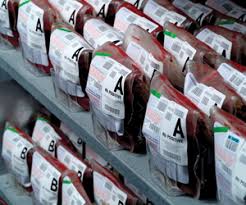NBSZ targets adults for blood collection
Share

Gweru (New Ziana) -The National Blood Services Zimbabwe which previously relied heavily on schools for collections, will shift to adults in communities as the Covid-19 pandemic has resulted in closure of educational institutions, thereby affecting inflows.
Speaking during a virtual media workshop, NBSZ Midlands planning and recruitment officer Agrrey Ngazana said blood collection and distribution had not been spared by the Covid-19 pandemic.
Ngazana said 70 percent of blood collections had traditionally been from schools and with the learning institutions closed, the organisation had changed focus.
“School children provide 70 percent, while the adult population provides 30 percent. We have not sat and relaxed as a service and since Covid-19 started, we have been going to where the blood is. We have been to Mkoba, Chivhu and Mbizo.
“Covid-19 has shown us that we have been operating dangerously and now since schools have closed we have a challenge. The reverse should be the norm and we should rely more on the adult population which is less likely to be affected by unforeseen emergencies and disasters,” he added.
Ngazana said the NBSZ had also liaised with the security sector to allow donors to move to donating venues during the Covid-19 period.
He said there was great potential in the adult population as a large number heeded the call to donate blood.
NBSZ Midlands manager Lloyd Kawondera said apart from liaising with the security sector, they were also working with the provincial medical director and the Gweru Provincial Hospital medical superintendent.
“We developed exemption letters for our donors and also provided them shuttle buses when there were challenges,” he said, adding the organisation supplied blood to 14 hospitals in the province.
The government covers the cost of blood for all patients at public hospitals while those in private ones buy it at US$120 per unit.
NBSZ public affairs manager and spokesperson Esther Massundah said the virtual workshop was conducted to educate the media on the NBSZ blood supply systems management and ensure accurate dissemination of information on blood issues.
She said her organisation relied on the media to communicate its message in different languages to different stakeholders and communities using the appropriate tools.
Massundah said the NBSZ would this year launch media awards, which it expected would improve reporting and coverage of the blood programme.
New Ziana








